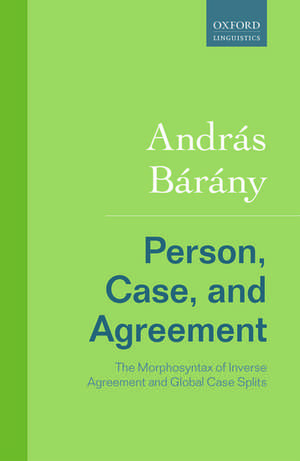Person, Case, and Agreement: The Morphosyntax of Inverse Agreement and Global Case Splits
Autor András Bárányen Limba Engleză Hardback – 30 noi 2017
Preț: 612.98 lei
Preț vechi: 879.75 lei
-30% Nou
Puncte Express: 919
Preț estimativ în valută:
117.30€ • 122.77$ • 97.63£
117.30€ • 122.77$ • 97.63£
Carte tipărită la comandă
Livrare economică 20-26 martie
Preluare comenzi: 021 569.72.76
Specificații
ISBN-13: 9780198804185
ISBN-10: 0198804180
Pagini: 240
Dimensiuni: 161 x 242 x 20 mm
Greutate: 0.52 kg
Editura: OUP OXFORD
Colecția OUP Oxford
Locul publicării:Oxford, United Kingdom
ISBN-10: 0198804180
Pagini: 240
Dimensiuni: 161 x 242 x 20 mm
Greutate: 0.52 kg
Editura: OUP OXFORD
Colecția OUP Oxford
Locul publicării:Oxford, United Kingdom
Notă biografică
András Bárány studied general and Finno-Ugric linguistics in Vienna and Budapest before moving to the University of Cambridge, where he obtained his PhD in theoretical linguistics. He has since worked at the Research Institute for Linguistics of the Hungarian Academy of Sciences in Budapest, Hungary, and at the School of African and Oriental Studies in London.
